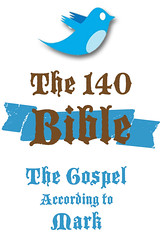Maybe you've read the Bible and heard the word Pharisee or Sadducee thrown around? So what gives with this preacher stuff?
Let's get historical, shall we? First off, preacher is not found in most translations of the Bible and for good reason--if you are going with the most accurate translation then that word just does compute. Don't worry, I'm not just loosely throwing the word around here; in many respects, people today would recognize Pharisees and Sadducees as preachers. In reality, they were probably closer to what modern church goers know as elders or church leaders.
What's the difference between the two? Let's start with the Pharisees. Pharisees liked to keep things old school. They believed in an afterlife (which, oddly enough, some Jews did not--but that's for another blog), and they believed that a Messiah would come; some eventually believed that Jesus was the Messiah, others did not, and some believed in a different Messiah altogether (you can see a huge list of people who claimed to be Messiah here). They loved laws; in particular, they loved the Torah. On top of the Torah, they believed in something called the Talmud, which is basically the law that God gave Moses that was passed down orally from generation to generation.
And now, The Sadducees. Where Pharisees could be seen as working class every day people, the Sadducees were--for lack of a better word, elitist. They did not believe in the idea of Oral Law which was found in the Talmud; they insisted in a strictly literal interpretation, and, as such, did not believe in the afterlife; the after life is mentioned in the Talmud, but not the Written Law or Torah. The Sadducees were often priest or some other form of upper class.
There was also a third group that popped up called the Essenes. The most important thing you need to know about them is they are where we got a little thing called the Dead Sea Scrolls. The Essenes kept things pretty monastic (meaning no sex), so, for obvious reasons, they did survive for long--it's hard to keep any group going that doesn't encourage members to keep them popping out.
What you have to remember, as you consider all three of these groups, is people didn't exactly have democracy--politics for many people back then, was religion. In the same way that we might associate ourselves as democrat or republican, they would associate themselves with these religious groups.







0 comments:
Post a Comment